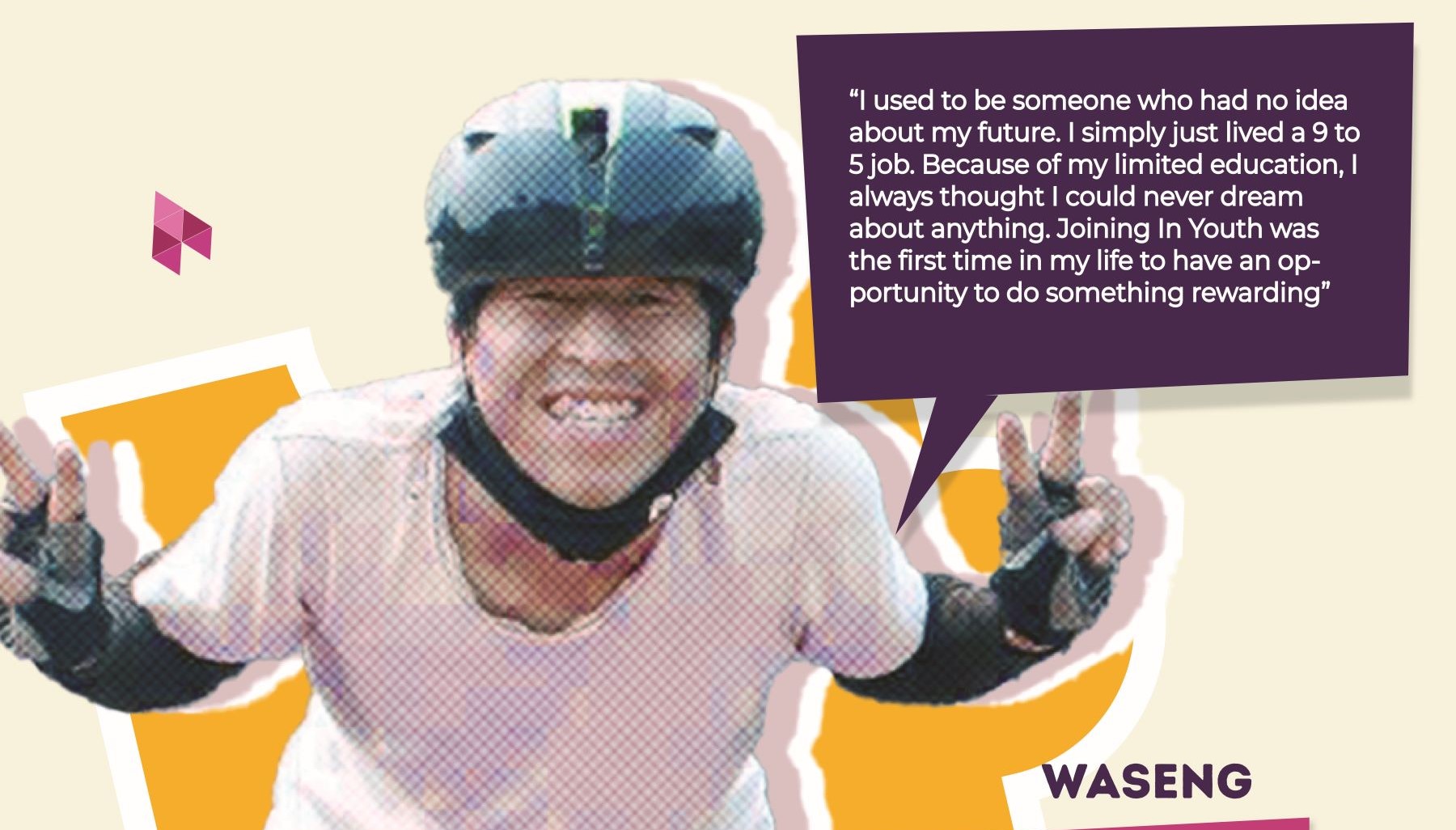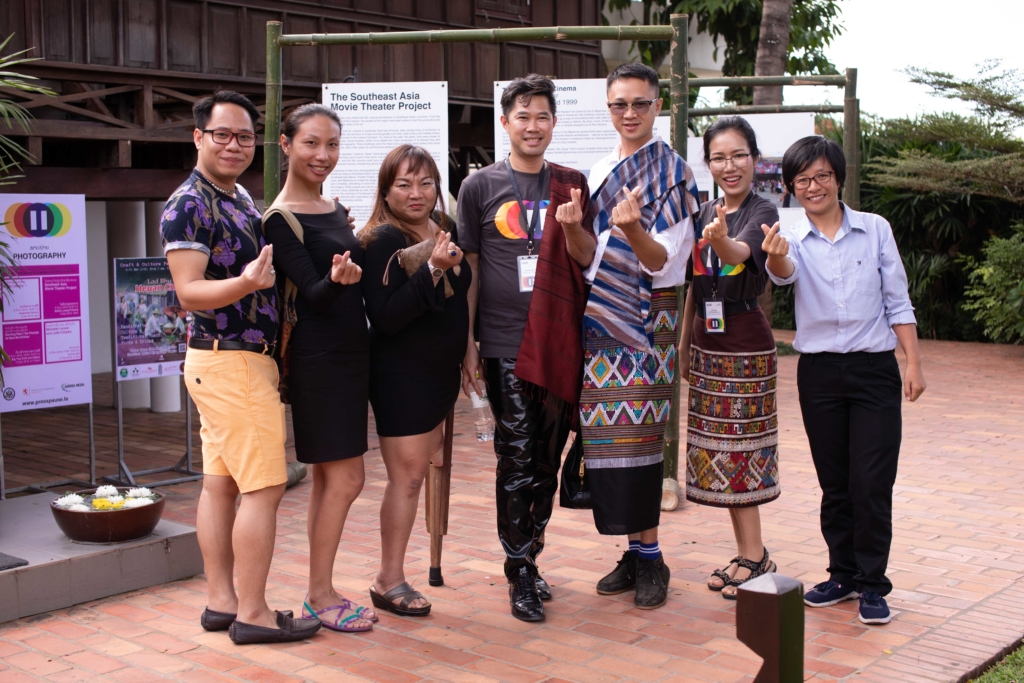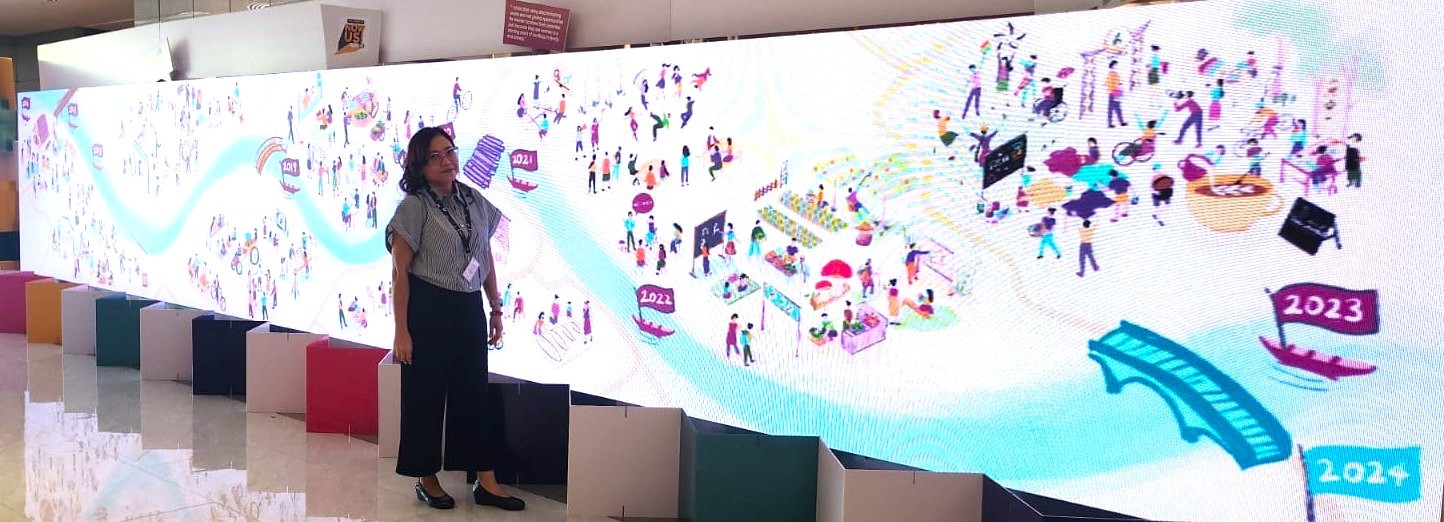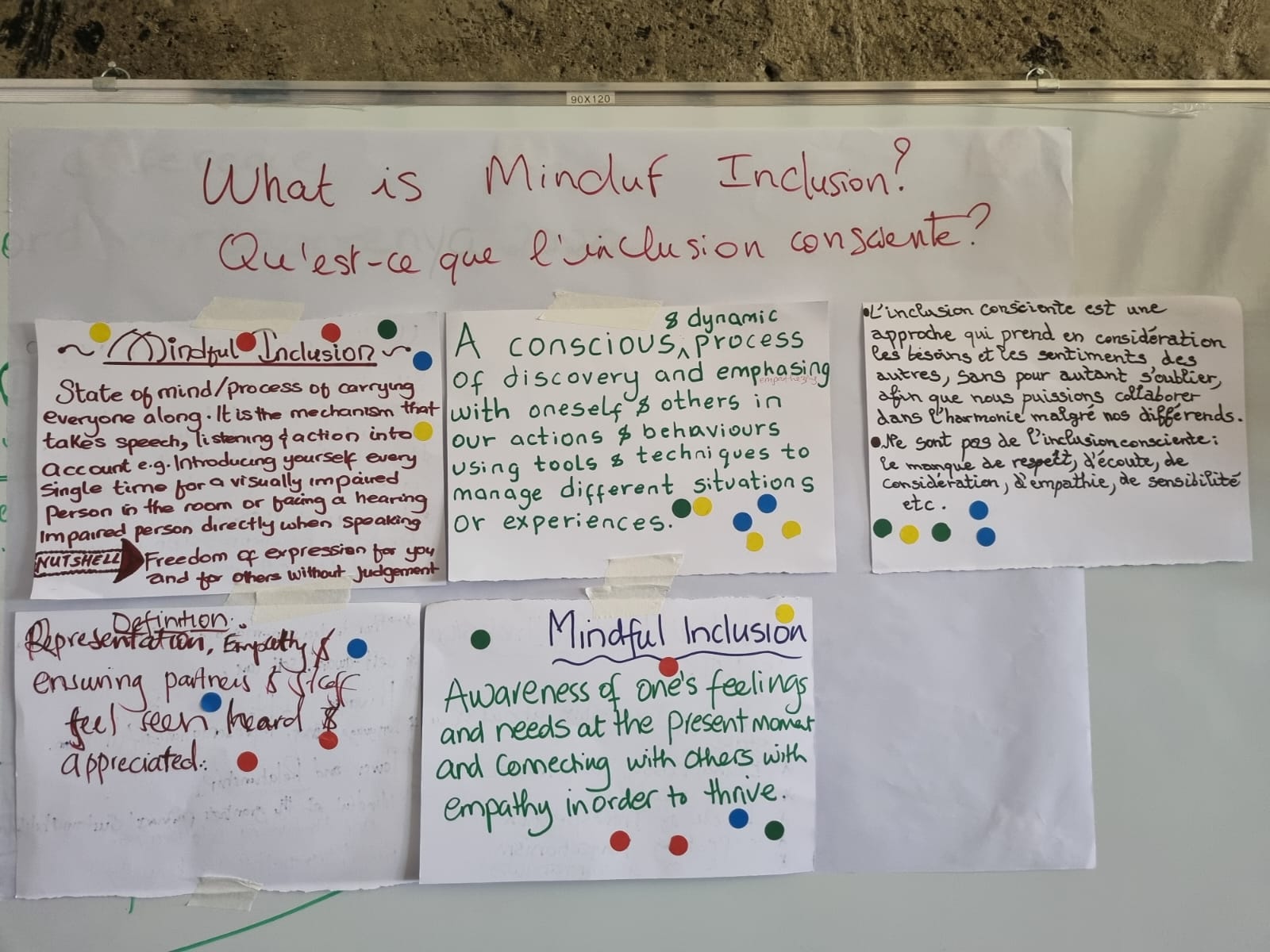Being gay at Oxfam!
To celebrate and commemorate the International Day Against Homophobia and Transphobia, the Voice Programme Officer for Oxfam in Laos, Nakhornphet Pasomsouk (also known as Lae, left on photo) shares his personal experiences of being gay at Oxfam. This year’s IDAHOT theme is Alliances for Solidarity which is a recurrent theme in Lae’s story.
A BIG thank you to Lae for writing and sharing as well as Oxfam Novib Intern Levis Ndiritu for asking the questions. Levis is working on LGBTI inclusion within Oxfam Novib, the lead contractor of Voice.
Please introduce yourself
My name is Nakhornphet PASOMSOUK, also known as Lae. I am 32 years old, identify as gay (feminine gay to be precise). I’m from Vientiane, which is the capital of Lao People Democratic Republic. I am currently working for Oxfam in Laos as the Programme Officer for Voice.
How would you describe yourself
I am a fun person with a vibrant and enthusiastic personality, and passion. I love music, like to dance and express who I am.
Tell us about your coming out story
Talking about my coming out story, actually the way I came out may be different from others’ but at the same time may be similar. I was born in a conservative family, that even complained if I wore something that looked feminine, and criticised the way I spoke, etc. Because to them if you were born a man, you had to be and act as a man, speak, walk and play like one. Plus, some people in society continue to think that being gay is a mental health issue and disease that can be cured. It was such a tough time for me and I kept everything to myself.
But then, when I was about 20, I realised that I had to do something to prove to them that being gay means I can have as good a life as others. So, I turned all the tough times I faced, negative words that were said into positive forces to motivate and encourage me to do better and to make my family proud of who I am. I am lucky to have friends who understand me and to whom I can talk, this is very important. You have to find your alliances and allies who understand and have time for you, it helps a lot.
However, I have never confronted my family or anybody by saying “Hey, I am gay”, due to the fact that I believe that action speaks louder than words. I told myself to be patient because coming out is a life-long process. Therefore, I have been trying to be me and reveal myself bit by bit, it’s like a big bumpy road but it’s worth it. In the meantime, I tried to have a good career and make them proud of what I do and who I am. Till now, I have never stopped proving myself to them, because they are my family, the people who I love and want them to understand me the most.
So, now they seem to accept the way I am, not only family but also people around me, even though they never spoke a word about it, but the way they treat me shows everything. I even heard my family talk to others that I can be a role model to their kids.
Action does speak louder than words indeed.
It means a lot in my life, it makes me so happy and encourages me to be a better person every day.
Are you out at work? Kindly describe your experience?
At work, I have always been out since the very beginning of my career. My very first job was about Sexual Health supporting Men who have sex with men (MSM) implemented by an INGO in Laos. It was a good opportunity for me to be who I am and at the same time support the project, as well as working with gay men who were volunteer peer educators.
At Oxfam I can be me due to the fact that the Voice programme also focuses on LGBTI. However, I have to balance this due to the great diversity of people, colleagues and project partners at work. So, I think I can be myself, at the same time i have to know how to behave properly in order to gain respect from people towards who you are.
What does being out mean to you?
Coming out means a lot to me, it makes me who I really am and who I want to be deep inside, as well as living my life with happiness, due to being who I really am which may add happiness in the life of other LGBTI people yearning to be themselves. And it’s a plus when I come out and people around me accept and understand. Moreover, it somehow makes me capable to contribute more to the work I like and I am doing, as well as going to extra mile in and outside of work.
Why do you think it’s important for organisations to have LGBT+ welcoming policies and practices?
I think it’s good if any organisation has this, due to the fact that it will make the organisation more inclusive in theory and (hopefully) practice. Furthermore, it will also make LGBTI employees feel comfortable to be who they are right from the start, and feel welcoming, not feeling excluded, discriminated, and stigmatised. Instead they are treated equally with acceptance and understanding. Because I believe that LGBTI employees can also contribute to the work just like straight colleagues can. Especially at development organisations, before helping/supporting others or a community, you have to look at yourself and your own policies, to assess whether your organisation is being inclusive, otherwise you won’t be able to perform well, and cannot properly support others!
On this IDAHOT day 2018, how can Oxfam stand in solidarity with LGBT+ persons? Tell us more about Voice in Laos and how it is making a positive impact on LGBT+ persons.
For the occasion of IDAHOT Day 2018, Oxfam (in Laos) is trying to get involved in the activities or event that will be organized, alongside with other key stakeholders. This obviously includes the LGBTI community to show our support to them, for instance I will participate in the Facebook Live Discussion organised by the Australian Embassy in Laos on the topic of being LGBTI in Laos, and also will take part in a panel discussion at IDAHOT Day event at the American Center.
However, i think Oxfam should also promote more LGBTI programme and issues to influence Oxfam around the world to help them see the real importance on inclusion. For instance, Oxfam should launch a global campaign to support LGBTIQ+ and encourage Oxfam affiliates to take part through online platform, social media and so on. Additionally, while the Oxfam International policy on sexual orientation and gender identity is a great start a lot more needs to be done on its roll-out.
Regarding Voice in Laos, we have good relations with the local LGBTI network. Since Voice launched in Laos late 2016, the LGBTI community is happy to see another opportunity to advance the LGBTI movement, as it is an emerging young one. They have been trying to apply for a small empowerment grant within Voice, they are very enthusiastic and actively engage in Voice’s activities and events. Plus, Voice offers a stage for the LGBTI community to gather and exchange experiences through outreach activities during which they had a chance to learn more about Sexual Orientation and Gender Identity and Expression (SOGIE). Moreover, the LGBTI population is one of the targets within the Oxfam Youth Strategy, opening up more opportunities for Oxfam to work with LGBTI in Laos. Furthermore, I, as Voice Programme Officer, also engage in several movements to help create a positive impact to LGBTI in Laos along with other stakeholders: CSOs, INGOs, CBOs, etc…
Any final words of wisdom?
Last but not least, I would like to say that LGBTI+ people are part of every level of society, they may be people around you on a daily basis: parents, brothers, sisters, friends; but also doctors, teachers and other occupations out there. Being LGBTI+ is not a trend, not a problem, but a reality of human beings around the world since ancient times. And most importantly, LGBTI people can also contribute to development work as well as any other human being can!








